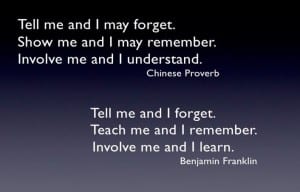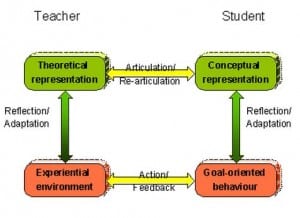What is the TEF? All we have so far is Jo Johnson’s Teaching at the Heart of the System speech and a mass of speculation – some of the best being the SEDA thread which Sally Brown has developed into a SWOT analysis.
Yesterday I attended a Building the Teaching Excellence Framework Seminar organised by the University Alliance in the Deans Yard precinct of Westminster Abbey. The event was an open TEF discussion. After four activities, three speeches and a contribution from Charlie Roper (politics student at UWE Bristol) we’d surfaced multiple issues but no firm conclusions other than highlighting the difficulty of defining what teaching excellence might look like.
The TEF idea isn’t new. There are references to a renewed focus on high-quality teaching in the 2011 Higher Education Students at the Heart of the System white paper. The issue is more about defining what ‘quality’ means and constructing any model which fits the eclecticness of the higher education experience. Is quality the same as inspirational? If they are linked then the paper by Katherine Jenson at the Learning and Teaching Institute, University of Huddersfield, might be a good place to start. What is Inspirational Teaching? Working Paper 3
In terms of focusing on teaching quality, I’m reminded of the days of the TQEF. Funding was provided to support learning and teaching which supported national areas of priority. These included widening participation, fair access, retention, employability and encouraging and disseminating good and innovative practice in support of high quality learning and teaching. The last point may be worth revisiting in these TEF-ful times. The TQEF at Lincoln was managed by the Teaching and Learning Development Unit and the legacies from the Teacher Fellow awards which emerged from these funds can still be seen today (link to follow).
I think appropriate choices of pedagogy lie at the heart of a ‘quality’ education. The gap between traditional transmissive modes of delivery and constructivist teaching and learning needs to be narrowed and crossed with appropriate bridges. Like digital scholarship. Laurillard’s Conversational Framework (image below from James Atherton’s Learning and Teaching site is worth consideration. It requires interaction and collaboration with content, teachers and peer groups and can be applied to both online and offline environments.
Put staff development, digital pedagogies, scholarship and the internet together and you have a way forward. Activities which encourage students to explore OER and MOOC, staff to transfer lecture content via free software like the new Xerte, and peer review practices across both staff and student experiences all offer ways and means of interaction.

The EDEU Sharing Practice videos have ideas for engagement in particular Valeria Carroll on student led assessment. Rather than treat VLE in isolation we should use them to take a fresh look at how teaching excellence might appear. Make or break: the UK’s digital future report notes that the higher education sector “has not responded to the urgent need for reskilling” and calls for institutions to develop courses to give the students the skills they need. This won’t happen unless staff receive appropriate support to get digital in the first place. Digital graduate attributes need digitally competent teachers. SoTL needs an ‘e’ in the way that e-learning already has one and e-teaching should have one!
My suggestion is teaching excellence can’t happen in isolation from the adoption of appropriate and meaningful teaching technologies.
Woodcut image from http://oldweb.cecm.sfu.ca/personal/tstanway/MKM/thesis.intro3.html
Tell Me, Show Me, Involve me image from http://www.slideshare.net/jgigante/projectbased-learning


Comments are closed.